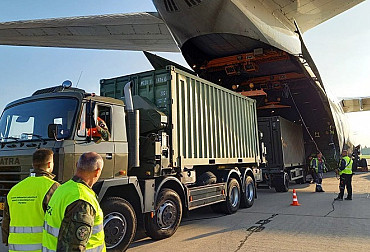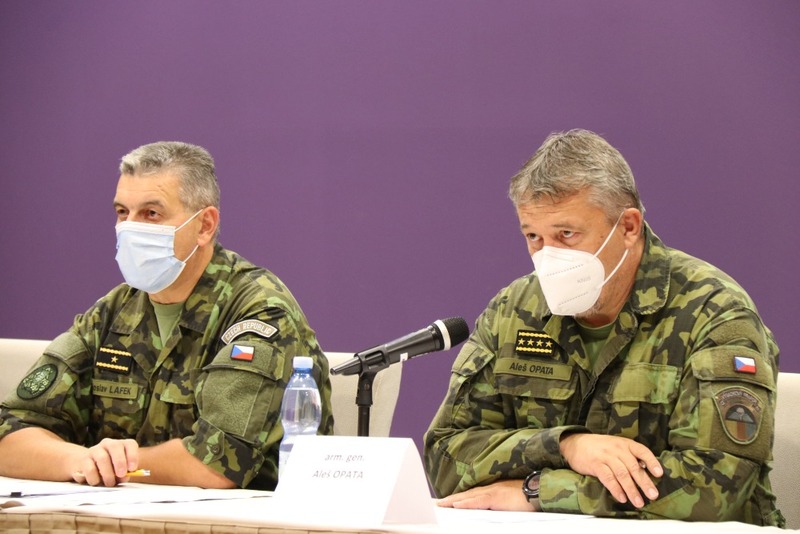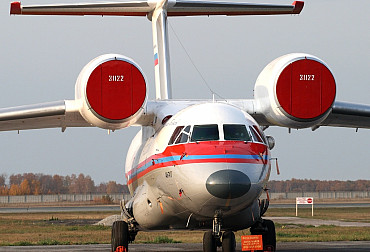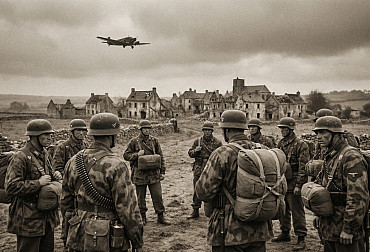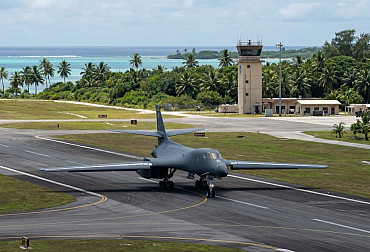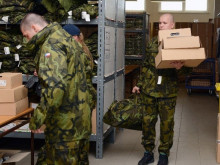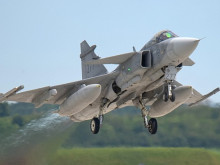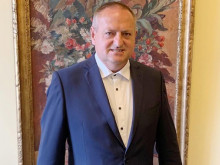Active Reserve Will Train Also Online
The coronavirus pandemic complicates the training of the Active Reserve of the Army of the Czech Republic. Chief of the General Staff Aleš Opata presented a novelty at yesterday's press conference. In addition to the resumption of classic training in November and December, there will be an e-learning training. This method has so far been applied to professional soldiers. The Active Reserve have 3308 soldiers. A thousand of these has managed to undergo regular training this year.
There is the obligation of the Active Reserve to participate in the regular trainings and that is why about a thousand more AR soldiers will have to complete the classic training in the field and another thousand will undergo training for the first time in the "military" home office by the end of the year.
The online training will have three categories: For officers, chief warrant officers and non-commissioned officers. The individual areas differ in content. While officers and chief warrant officers will solve special tasks, study practical knowledge of the current and future direction of the army, non-commissioned officers will be trained in the preparation of tactical orders, tactical documents, drills and other tasks. The common part of distance training will consist of health issues, characteristics of epidemics, pandemic plans and handling of medical equipment. The evaluation criterion of this preparation will be a final test. The soldiers do not have to succeed in it, however, their results will appear in their annual evaluation. After completing this phase, the army will work out an evaluation that will help improve this form of training.
Picture: The Chief of the General Staff of the Army of the Czech Republic Army General Aleš Opata (right) informed about the resumption of the AR training, Brigadier General Miloslav Lafek (left) provided information on the e-learning pilot project | army.cz
The e-learning will have the same essentials as regular training. Therefore, the soldiers were sent a standard draft notice and instructions with data for the connection to the virtual system.
At the press conference, the director of the military health section, Brigadier General Zoltán Bubeník, stated that for the standard training, increased disinfection of accommodation is ensured, including constant monitoring, and the army also purchased a sufficient number of PSR tests that will detect the presence of the virus within 48 hours. These tests will be provided to soldiers free of charge. At the same time, everyone was instructed on what rules to follow before starting the training.
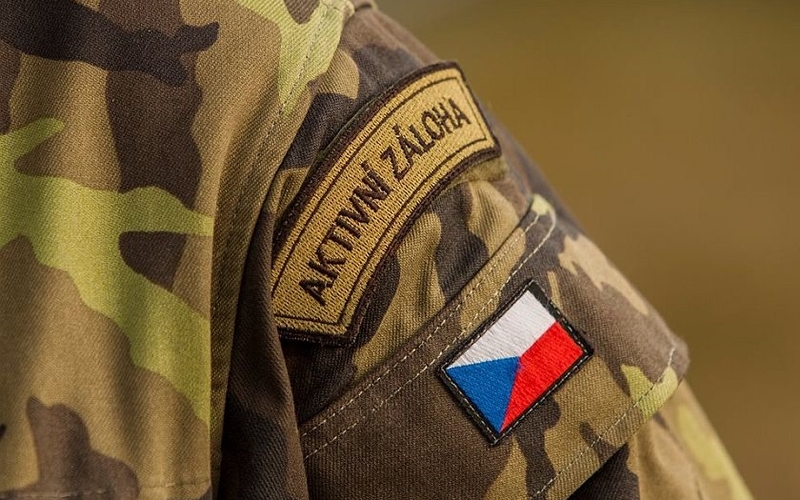
Picture: The Active reserve is a full-fledged part of the Armed Forces of the Czech Republic and is necessary for a fully professional function of the Army of the Czech Republic. | army.cz
At the end of the press conference, Chief of the General Staff Aleš Opata stated that the army has set aside forces and resources to strengthen the Integrated Rescue System in coping with the coronavirus pandemic. However, he admitted that "should these capabilities be exhausted, we will begin to consider deploying the Active Reserve".
We asked the Adviser of the Chief of the General Staff for AR Reserve Captain Ludvík Cimburk and Deputy Commander of the 72nd Mechanized Battalion (AR) and Chairman of the Board of AR Reserve Commanders Mgr. Ivo Heinz the following questions in connection to the above-mentioned events:
1) How do you assess the army's decision to resume the AR training in the form of an alternative training?
Ludvík Cimburek: Neither as the Adviser to the Chief of the General Staff for AR, nor as the Commander of the AR 601st Special Forces Group, do I assess the decisions or orders of superiors. I understand that the decision, or rather the fulfilment of the decision, should solve some kind of situation. The situation was to find a solution to maintain AR's abilities, when it was clear that the AR training could not take place in the same conditions as it did in summer (due to the worsening of the epidemiological situation), and to prepare for the fact that "COVID" will be with us for some time to come. Of course, the implementation of the decision will have some consequences, such as the fact that in such a short time it will not be possible to prepare "perfectly" or the fact that this e-learning training is out of the scope of the training plan, so the army will have to provide 100% financial compensation to the AR employers instead of the usual 66 % of the average wage.
Ivo Heinz: I think the resumption of the training is good news, especially since it concerns not only the alternative training but also the other ones planned. I'm glad we'll get into training again. There will be restrictions due to hygiene measures, but finally we will continue to do what we are in the AR for. This is probably the most important piece of information.
2) What is your opinion on e-learning, what advantages and disadvantages do you see in this system?
Ludvík Cimburek: Advantages and disadvantages are subjective evaluations. E-learning has some parameters, requires greater independence in studying, allows individual speed of studying, the system "sees" if you are doing something (and also that you are not doing anything), there is no possibility to "immediately" ask when you do not understand something, etc. In any case, this means that in the future, the soldiers in the AR will study significantly more than before, and will study also between training "in the field".
Ivo Heinz: I am convinced that such a form of preparation is great and beneficial for some topics and for theoretical preparation, and it should definitely continue to be used on a regular basis. And, of course, practical training should take place at the same time. I see the advantages in the possibility of theoretical preparation, acquaintance with materials that are otherwise less available for the AR, in the possibility of controlling what the soldiers learn, the possibility of testing a large number of people at once, the unification of knowledge. The disadvantage is, in my opinion, the time that must be sacrificed from the training days in a given year. I think it would be better in the future to enable distance training in the soldiers’ free time, supplemented by a final training camp, where all the principles of distance education could be applied.
3) General Opata said at the conference that the army has the forces and resources to strengthen the Integrated Rescue System, but if these capabilities are exhausted, the army will begin to consider the deployment of the Active Reserve. In your opinion, are the AR members sufficiently prepared?
Ludvík Cimburek: Soldiers in the Active Reserve are prepared to strengthen the IRS just as well as professional soldiers are. Both the army and the AR train cooperation with the IRS, but no one has specific training for the IRS tasks - unless I count that several AR units have been training construction of flood barriers.
Ivo Heinz: The soldiers in the AR are definitely mentally and physically ready to start working wherever the armed forces need them. As far as specialized training is concerned, it would depend on what our deployment would require. For example, we would certainly manage the same deployment as we had in the spring. In 2013, the AR proved that they are capable of deployment even in floods.











